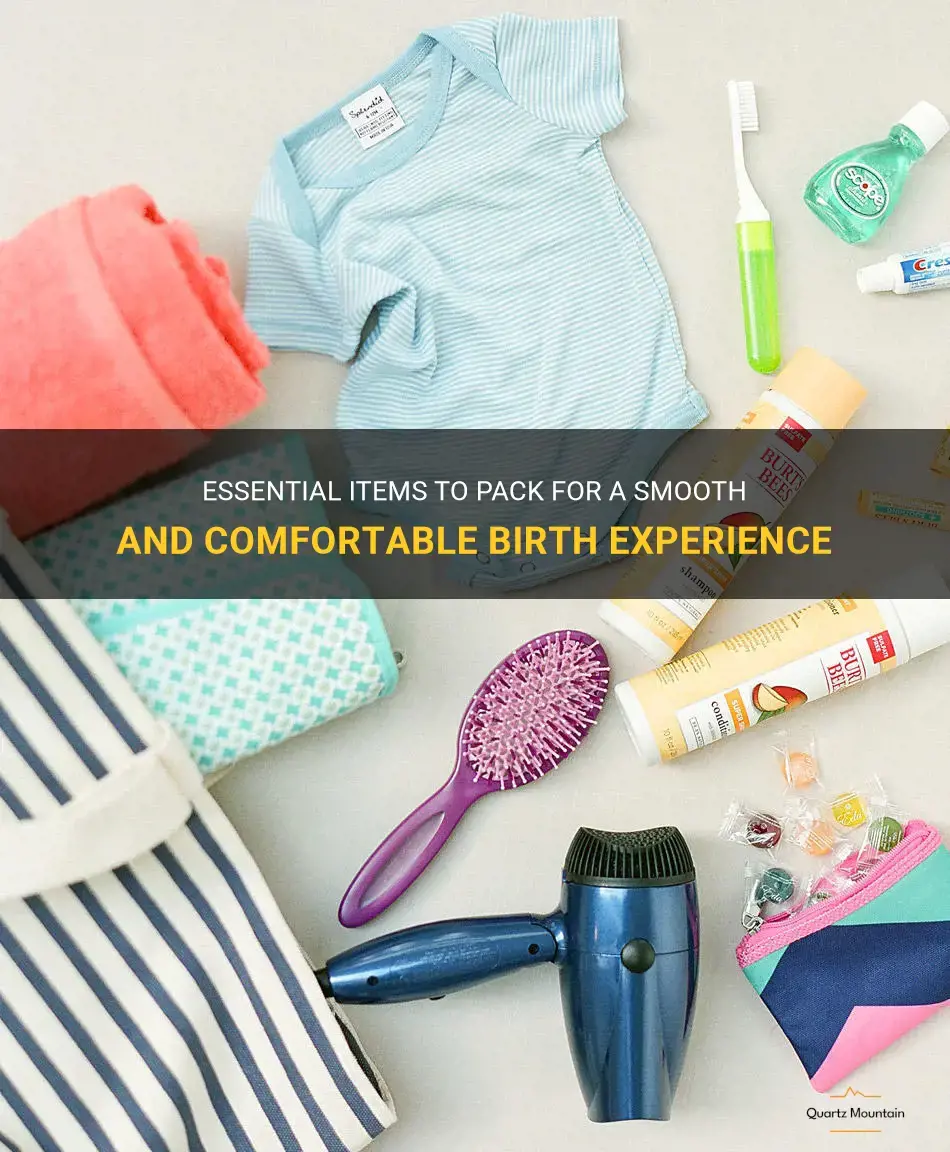
Preparing for the birth of a baby is an exciting time, filled with anticipation and joy. However, it can also be a bit overwhelming, especially when it comes to knowing what essential items to pack for a smooth and comfortable birth experience. Whether you're planning a hospital birth or a home birth, having the right supplies can make all the difference in ensuring a calm and relaxing environment for both you and your baby. From essentials for mama's comfort to things to help keep baby cozy and content, this guide will cover all the must-have items you need to make your birth experience as smooth as possible.
What You'll Learn
- What are the essential items to pack for the hospital when preparing for childbirth?
- Are there any specific items that should be packed for both the mother and the partner/support person?
- Are there any clothing items or personal care items that are commonly overlooked but important to pack for childbirth?
- Should certain items be packed in a separate bag or organized in a specific way for easy access during labor and delivery?
- Do hospitals provide any necessary items or supplies, or should everything be packed in advance?

What are the essential items to pack for the hospital when preparing for childbirth?
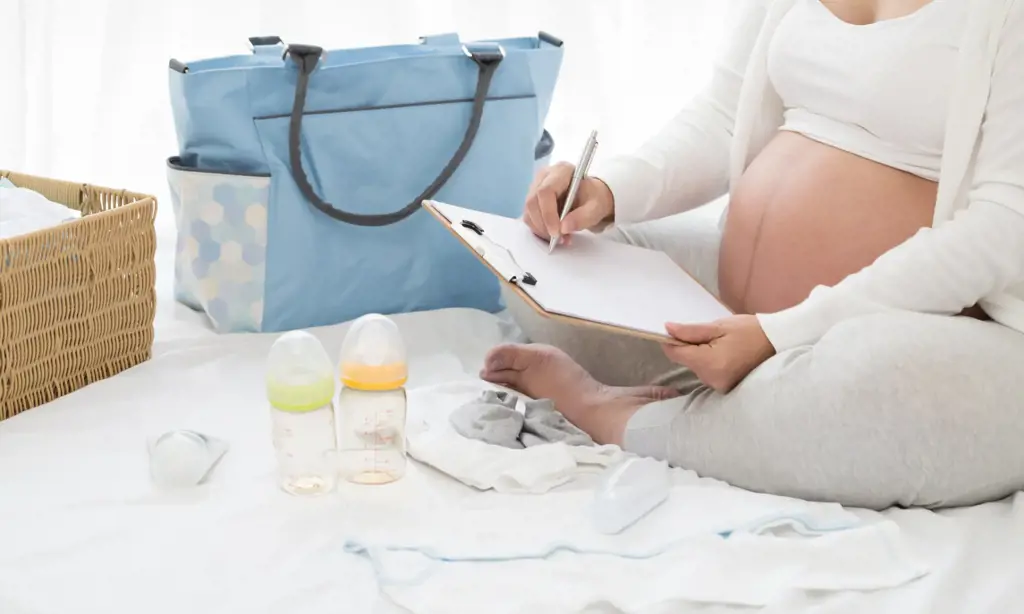
Preparing for childbirth is an exciting and important time in a woman's life. It's important to have all of the essential items ready for your hospital stay to ensure a smooth and comfortable experience. Here are some items that you should consider packing when preparing for childbirth:
- Comfortable Clothing: Pack a few sets of loose and comfortable clothing to wear during your stay at the hospital. Opt for soft and breathable fabrics such as cotton. You may also want to include a nursing bra and disposable underwear.
- Toiletries: Don't forget to pack your toiletries such as toothbrush, toothpaste, shampoo, conditioner, body wash, and a hairbrush. These items will help you feel refreshed and clean during your hospital stay.
- Maternity Pads: It's essential to pack maternity pads as you will experience bleeding after childbirth. Look for pads specifically designed for postpartum use, as they are more absorbent and comfortable.
- Snacks and Drinks: Labor can be a long and tiring process, so it's a good idea to pack some snacks and drinks to keep your energy levels up. Pack granola bars, fruit, and water bottles to stay hydrated and nourished.
- Entertainment: Labor can sometimes take a while, so having some form of entertainment can help pass the time. Consider packing a book, magazine, or your favorite movie on a tablet or smartphone.
- Nursing Supplies: If you plan to breastfeed, be sure to pack all the necessary supplies. This includes nursing pads, lanolin cream, a nursing pillow, and breast pump if required.
- Comfort Items: Bringing items that provide you with comfort and relaxation can help create a peaceful atmosphere during labor. Consider packing a favorite pillow, a cozy blanket, or a soothing essential oil diffuser.
- Baby Essentials: Don't forget to pack essential items for your newborn. This includes diapers, wipes, onesies, mittens, baby blankets, and a going-home outfit.
- Important Documents: Make sure to pack your identification, health insurance information, birth plan, and any other important documents that the hospital may need.
- Camera or Phone: You'll want to capture the special moments of your child's birth, so don't forget to pack a camera or your phone to take pictures and record videos.
- Supportive Items: If you have specific items that provide you with comfort and support during labor, be sure to bring them along. This could include a birthing ball, a TENS machine, or a hot water bottle.
Remember to check with your healthcare provider or the hospital you'll be delivering at for any specific items they recommend or provide. Packing these essential items will help ensure you have a comfortable and prepared stay at the hospital during childbirth.
Essential Packing Guide for an Amazing Alaska Adventure in August
You may want to see also

Are there any specific items that should be packed for both the mother and the partner/support person?
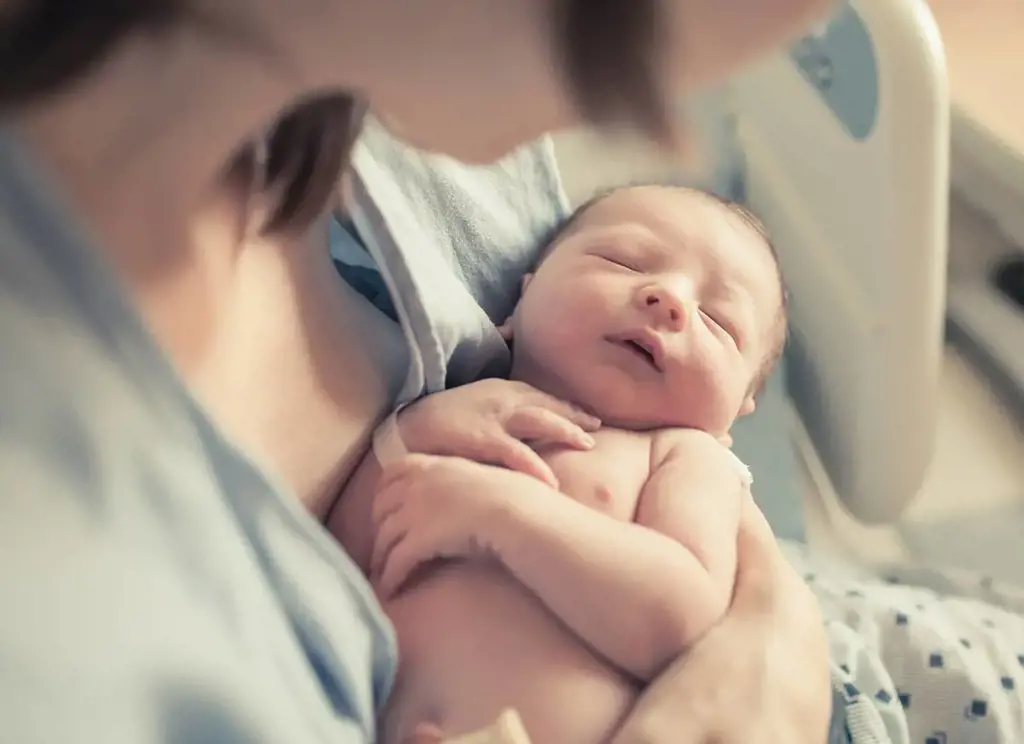
When preparing for childbirth, it is important for both the mother and the partner/support person to pack essential items that will help them navigate this experience comfortably. While the specific items may vary depending on personal preferences and the birth plan, there are some essentials that are universally recommended.
For the mother, it is essential to pack comfort items such as loose-fitting clothing, a robe or sweater, slippers or comfortable shoes, and toiletries. These items will help the mother feel more at ease during labor and recovery. It is also a good idea to pack items that can help with relaxation, such as essential oils, a diffuser, or a portable speaker for playing calming music or guided meditations.
In addition to comfort items, the mother should also pack practical items such as a copy of her birth plan, important documents, and insurance information. It is also important to include any necessary medications or medical supplies that the mother may need during labor and recovery. In some cases, mothers may choose to bring their own birthing ball, as it can provide relief and support during contractions.
For the partner or support person, it is important to pack items that will help them support the mother during labor. This includes comfortable clothing, snacks, and drinks to keep their energy up, a phone charger, and any necessary toiletries. It can also be helpful to pack items that can provide comfort and distraction for the partner/support person, such as a book or magazine, a puzzle or game, or a portable entertainment device.
Additionally, the partner/support person should pack items that will aid in supporting the mother, such as massage oil or lotion, a tennis ball or massage tool for counter-pressure during contractions, and a camera or video recorder to capture special moments. It is also important to bring a list of important phone numbers, including the healthcare provider, family and friends, and any support resources or doulas that may be involved in the birth.
While these are general recommendations, it is important for both the mother and the partner/support person to discuss and customize their packing list based on their specific needs and preferences. It is also important to keep in mind any restrictions or guidelines set by the birthing facility or healthcare provider.
To give you an idea of what this might look like in practice, let's consider the case of Sarah and her partner John. Sarah is planning for a natural childbirth in a birthing center. Based on their preferences and the birth plan, Sarah and John have packed the following items:
For Sarah:
- Loose-fitting clothing: a comfortable nightgown and a robe for labor
- Slippers and socks for comfort
- Toiletries: toothbrush, toothpaste, shampoo, conditioner, and face wash
- Essential oils and a diffuser for relaxation
- Portable speaker for playing calming music
- A copy of their birth plan and insurance information
- Medications: prenatal vitamins, any prescribed medications, and pain relief options as discussed with their healthcare provider
- Birthing ball for labor support
For John:
- Comfortable clothing and shoes
- Snacks and drinks for energy during labor
- Phone charger
- Toiletries: toothbrush, toothpaste, and deodorant
- Entertainment: a book and headphones
- Massage oil for providing comfort to Sarah during labor
- Tennis ball for counter-pressure during contractions
- Camera to capture pictures and videos
By packing these essential items, Sarah and John are prepared to navigate the childbirth experience comfortably and support each other throughout the process. It is important to note that different birthing experiences may require different items, so it is essential to customize the packing list to individual needs and preferences.
In conclusion, both the mother and the partner/support person should pack specific items to ensure comfort and support during childbirth. While the specific items may vary, it is important to prioritize comfort, practicality, and support. By preparing the necessary items in advance, both the mother and the partner/support person can be better equipped to navigate the experience and create a positive birth environment.
Essential Items to Pack for a Trip to Basque Country
You may want to see also

Are there any clothing items or personal care items that are commonly overlooked but important to pack for childbirth?
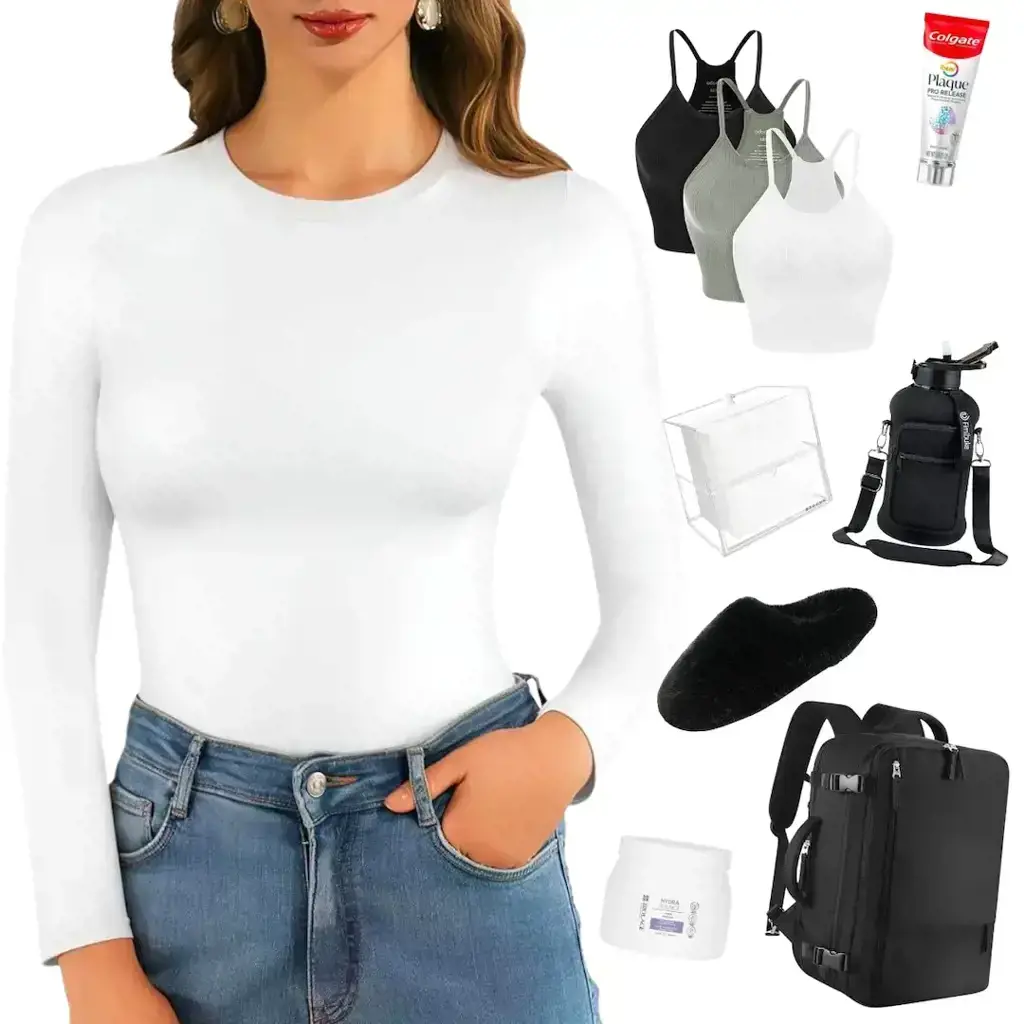
When it comes to packing for childbirth, it's easy to focus on the essentials like clothes for yourself and the baby, toiletries, and important documents. However, there are a few often overlooked clothing items and personal care items that can make a big difference during the birthing process. Let's take a look at some of these items and why they are important to have on hand.
- Comfortable and Loose-Fitting Clothing: During labor, comfort is key. Packing comfortable and loose-fitting clothing is essential, as it allows for easy movement and helps regulate body temperature. Opt for breathable fabrics like cotton or bamboo, as they can help keep you cool and comfortable. Loose-fitting clothing also makes it easier for medical staff to monitor your progress and provide any necessary interventions.
- Non-Slip Socks or Slippers: Hospitals can be cold, and walking around in bare feet may not always be the most comfortable option. Non-slip socks or slippers can provide warmth and traction, especially if you need to walk around during labor. They can also help prevent any accidental slips or falls.
- Nursing Bras and Breast Pads: If you plan on breastfeeding, packing a few nursing bras and breast pads can be a lifesaver. Nursing bras provide the necessary support and easy access for breastfeeding, while breast pads help absorb any leakage. These items can make breastfeeding more comfortable and convenient, especially in the early days after giving birth.
- Lip Balm and Moisturizer: Labor can be an intense and physically demanding process, which can leave your skin feeling dry and your lips chapped. Packing a lip balm and moisturizer can help keep your skin hydrated and prevent discomfort. Opt for fragrance-free and hypoallergenic options, as your baby's sensitive skin may be in contact with yours during breastfeeding or skin-to-skin bonding.
- Hair Ties or Headbands: Keeping your hair out of your face during labor can help you stay focused on the birthing process. Packing a few hair ties or headbands can help keep your hair neatly tied back and prevent any distractions. This way, your hair won't obstruct your view or get in the way during medical procedures or pushing.
- Extra Underwear and Disposable Panties: Childbirth is messy, and it's a good idea to pack extra underwear or disposable panties. This way, you can change into a fresh pair after delivery, particularly if you experience any bleeding or discharge. Disposable panties are convenient as they can be discarded after use, reducing the need to worry about stains or clean-up.
- Nipple Cream: If you plan on breastfeeding, packing nipple cream can help soothe and protect your nipples. Breastfeeding can sometimes be painful, especially in the early days when both you and your baby are learning and adjusting. Applying nipple cream regularly can help prevent cracked or sore nipples and make the breastfeeding experience more comfortable.
- Eye Mask and Earplugs: Hospitals can be noisy and brightly lit, making it difficult to rest or sleep. Packing an eye mask and earplugs can help create a more serene environment, allowing you to relax and get some much-needed rest between contractions. Adequate rest can be important during labor and recovery.
Remember, these are just some of the often overlooked clothing items and personal care items that can be important to include when packing for childbirth. Every individual's needs and preferences may vary, so it's advisable to consult with your healthcare provider or experienced friends or family members who have been through childbirth before finalizing your packing list.
The Essential Packing Checklist for a Memorable Cruise to Scandinavia
You may want to see also

Should certain items be packed in a separate bag or organized in a specific way for easy access during labor and delivery?
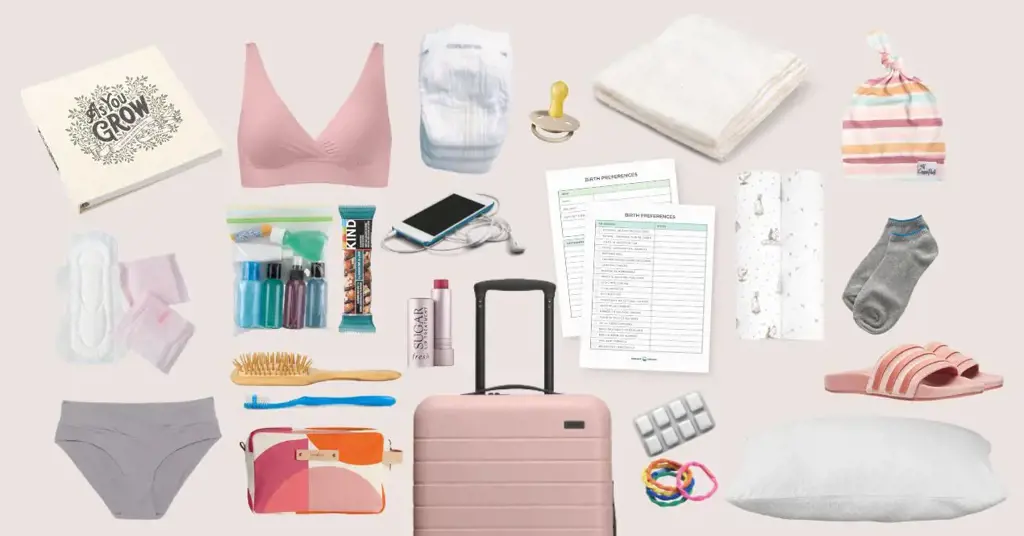
Preparing for labor and delivery involves packing a hospital bag with essential items to ensure a comfortable and smooth experience. While every woman's needs may vary, there are certain items that should be packed in a separate bag or organized in a specific way for easy access during labor and delivery. This article will discuss the importance of having a separate bag or organized items and provide a step-by-step guide on how to pack for labor and delivery.
One of the main reasons to have a separate bag or organized items is convenience. During labor, the focus should be on the mother's comfort and well-being. By having a separate bag or organized items, it becomes easier for the mother, partner, or healthcare professionals to find the necessary items without wasting time searching through a cluttered bag. This can be especially important in situations where quick access to certain items may be crucial, such as during an emergency or when pain relief options are required.
Here is a step-by-step guide on how to pack for labor and delivery:
Start by gathering the essential items. These may include:
- Comfortable clothing for labor and after delivery, such as loose-fitting shirts, comfy pants, and nursing bras if breastfeeding.
- Toiletries, including toothbrush, toothpaste, hairbrush, and any personal care items.
- Important documents, such as identification, insurance information, birth plan, and any medical records.
- Electronic devices, chargers, and any entertainment items, such as books or magazines, to help pass the time.
- Snacks and drinks for both the mother and partner, as labor can be a long and energy-consuming process.
- Separate the items based on their purpose. For example, keep the clothing separate from the toiletries and documents. This will make it easier to locate specific items when needed.
- Use smaller bags or pouches within the main bag to further organize the items. For instance, use a separate pouch for toiletries, a small bag for chargers and electronic devices, and a separate compartment for snacks and drinks. This will allow for easy access to each category of items without causing a mess.
- Label the different bags or pouches if desired. This can be helpful in ensuring that each item is put back in its designated place after use, making it easier to find them again.
- Keep the separate bag or organized items within reach. This could mean placing it near the hospital bed or having a designated spot within the delivery room. This way, no time is wasted searching for the necessary items when needed.
- Finally, make sure to keep the bag or organized items up to date. As labor progresses, certain items may be used or replaced. Keeping the bag organized and regularly checking its contents will ensure that everything is readily available when needed.
In conclusion, having a separate bag or organized items for labor and delivery can greatly enhance the overall experience. It provides convenience, saves time, and ensures that all essential items are readily accessible. By following the step-by-step guide mentioned above, expectant mothers can be well-prepared for the journey of labor and delivery.
Essential Items to Include in Your Day Trip Bouldering Pack
You may want to see also

Do hospitals provide any necessary items or supplies, or should everything be packed in advance?
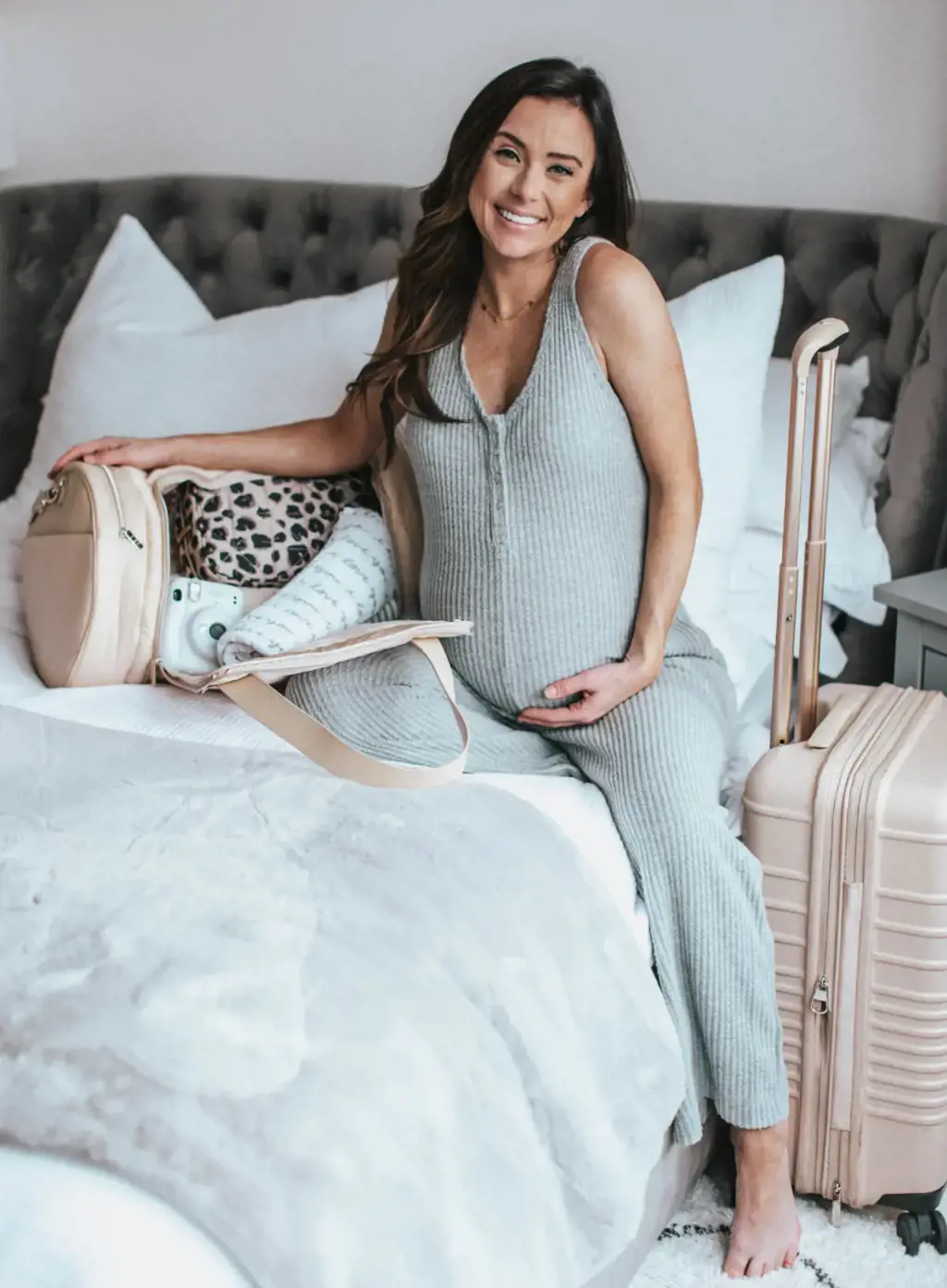
When it comes to preparing for a hospital stay, it is important to consider what items and supplies you will need during your time there. While hospitals do provide many necessary items, it is still a good idea to pack a few things in advance to ensure your comfort and convenience.
One of the most important things to consider is clothing. Hospitals typically provide patients with a gown to wear during their stay, but it can be helpful to have your own comfortable clothing to change into. Packing a few pairs of pajamas or loungewear, along with extra underwear and socks, can go a long way in improving your comfort during your hospital stay.
Personal hygiene items are another consideration. While hospitals do provide basic toiletries like soap and shampoo, you may prefer to use your own products. Packing a travel-sized toiletry kit with your favorite toiletries can make you feel more at home during your stay. Don't forget items like a toothbrush, toothpaste, and any other personal care items you may need.
In addition to clothing and personal hygiene items, it is also a good idea to pack some entertainment and comfort items. Hospitals can be boring places, so having a few things to keep yourself occupied can make the time pass more quickly. Consider packing a book or magazine, a portable DVD player or tablet for watching movies or TV shows, and any other items that you enjoy using to pass the time.
While hospitals do provide many necessary items and supplies, packing a few items in advance can make your stay more comfortable and convenient. By considering your clothing and personal care needs, as well as packing some entertainment and comfort items, you can ensure that you have everything you need to make your stay in the hospital as pleasant as possible.
Essential Items to Pack for Flying with a Toddler
You may want to see also
Frequently asked questions
When packing your hospital bag for labor and delivery, it's important to have some essential items. This includes comfortable clothes to wear during labor, such as a loose-fitting gown or a comfortable nursing bra. You should also pack toiletries like toothbrush, toothpaste, shampoo, and soap, as well as any medications you may need. Additionally, it can be helpful to have some entertainment options, such as a book or a tablet, to help pass the time.
After delivery, it's important to have some items packed in your hospital bag to help you recover. This includes comfortable and loose-fitting clothes, such as nursing-friendly tops or pajamas. You may also want to pack some breastfeeding supplies, such as nursing pads and nipple cream. It can also be helpful to have some postpartum essentials, such as maternity pads, disposable underwear, and perineal spray. Don't forget to pack some snacks and drinks to keep you energized during this time as well.
When packing your hospital bag for your baby, it's important to have some clothing options. This includes onesies, sleepers, socks, and a hat to keep them warm. You'll also want to pack some blankets and swaddles to keep your baby cozy. Additionally, it's a good idea to pack diapers, wipes, and any other toiletries you may need for your baby. Don't forget essentials like a car seat for the journey back home.







